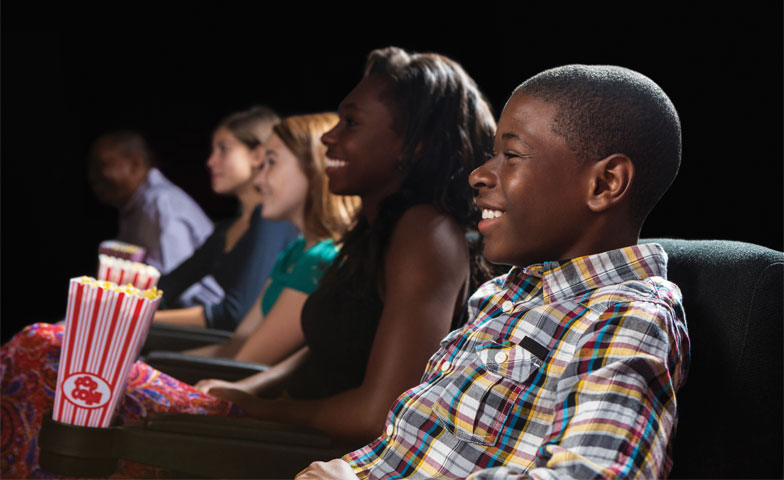How are middle grades educators supposed to act outside school?
As a middle level educator (since prehistoric times), I am sometimes immune to the many behaviors, antics, and attitudes of early adolescents—those behaviors often interpreted by others as inappropriate, disrespectful, and unsuitable for public consumption. Imagine that!
So after a recent outing to the local multiplex, where I witnessed an example of a young adolescent presenting a less-than-his-best image to unsuspecting moviegoers, I realized my own reaction to such behavior needed to be refined as well.
An Afternoon at the Movies
It was a typical Friday afternoon. Two colleagues and I decided to jump-start our weekend by watching the latest romantic comedy at the early-bird showing before heading home after a long week of educating the malleable minds of middle school students.
 About 10 minutes before the show was to start, the audience was filing in with snacks in hand. The crowd was not large, but it was diverse: some pre-teens and teenagers, elderly couples, an assortment of families, along with the three of us seasoned, reputable educators relaxing in the wings.
About 10 minutes before the show was to start, the audience was filing in with snacks in hand. The crowd was not large, but it was diverse: some pre-teens and teenagers, elderly couples, an assortment of families, along with the three of us seasoned, reputable educators relaxing in the wings.
Movie trivia flashed on the screen with elevator-type music echoing through the air; quiet chatter flowed up and down the aisles, and squeaky seats adjusted to accommodate patrons who were settling in.
And then the knocking began: quiet taps, at first, followed by loud bangs. It wasn’t hard to figure out that someone on the outside was trying to get the attention of an insider by rapping on the emergency door.
As if on cue, a baseball-capped head popped up and a young man darted toward one of the emergency doors. The audience of about three dozen theater goers watched as the young man opened the emergency door, inviting in bright sunshine and two of his buddies.
An elderly gentlemen near the front shared his disapproval: “Young man, your friends need to pay to watch the movie, too.” A murmur of agreement came from other theater guests, and we added our own teacher nods of agreement from the nosebleed section of the auditorium.
Behavior Issues
Now this next part, I have to admit, was not one of my most stellar moments as an educator and was completely involuntary in the heat of the moment.
I’ve taught middle school for nearly three decades and have heard every rant, obscenity, and expletive imaginable. I’ve counseled traumatized parents after they chaperoned a middle school dance for the first time. And I could easily compose a translation manual for the American Middle Level Sign Language Association—a language developed and mastered by any 12-year-old on the planet.
But, this was not the time nor the place to explain to innocent bystanders that the explosive nature of a young adolescent is more about the youngster’s own insecurities and less about civil disobedience, rambunctious rebellion, or blatant disrespect of authority.
So, when the baseball-capped offender responded to the unsuspecting senior citizen by inviting Grandpa to ingest a part of the adolescent’s anatomy, the audience drew in one of the loudest audible gasps imaginable while my colleagues and I … started to giggle. Once again, not my proudest moment. In fact, when other audience members began glaring at us and we suspected pitchforks might be the next order of business, we immediately shook our heads and subdued our reactions.
Meanwhile, the diverted attention allowed the rag-tag gang of hooligans to disappear, whether escaping to another theater or camouflaging themselves among our crowd, we’ll never know. Once the movie started, all appeared to be right with the world again, and laughter ensued in the appropriate places.
Something to Ponder
When the movie was over, as my teaching partners and I exited the theater inconspicuously, we embarked on a philosophical discussion about how reactions to the baseball capper’s action prompted one response from community members and a completely opposite one from us. Our feelings ranged from exasperation to indignation and amusement.
It wasn’t that we endorsed the behavior, nor would we tolerate the explosion in our own school, but the absurdity of the situation was more surreal than it was explainable.
How do we validate the feelings of the recipient—in this case, the elderly man—while redirecting the inappropriate actions of a hormonal teen? As educational role models of the community, is it our place to intervene in a public forum— similar to correcting a stranger’s child running in the supermarket? When does the uncomfortableness of a situation turn into a learning opportunity for the witnesses?
My colleagues and I parted ways, agreeing to ponder the questions over the weekend and later share our experience with peers at school. After all, it was Friday evening and we simply thought we could leave teaching and learning behind for a mere 48 hours…or could we?
